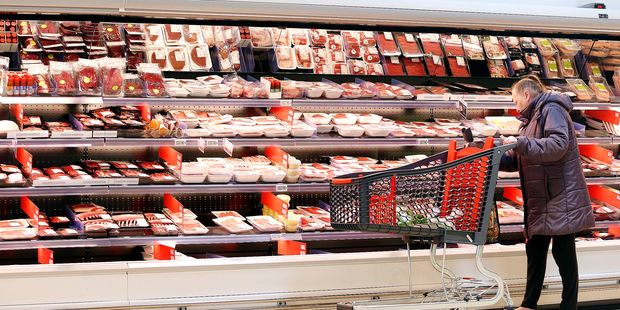Canada intends to get serious about plastic in the coming years, and the Canadian Produce Marketing Association has made a guide for how the business can push ahead in a progressively economical manner without promptly taking out utilization of the material, which fills numerous significant needs as an essential bundling material for new produce.
To begin with, the CPMA put the business’ utilization of plastic in context; 58% of new produce sold in Canadian retailers isn’t bundled in plastic, and the volume of the material utilized by the crisp produce industry in Canada is 5.1% of generally plastic bundling and 2% of in general plastic entering the nation’s economy every year, as per the CPMA report.
The association found that, while there are steps that ought to be taken to lessen the utilization of plastic, the “premature withdrawal of current plastic packaging” could trigger a huge number of bothersome results, remembering a noteworthy increment for food waste.
Plastic is basic to quality and timeframe of realistic usability for various famous crisp produce things, particularly packaged salads and berries, and CPMA found that the financial expense would approach $4 billion if plastic somehow managed to be denied before suitable choices are created.
“The scopThe range of fresh produce available to consumers would diminish,” CPMA wrote in its report. “Business models may no longer be viable, potentially leading to businesses and sectors ceasing to exist. Prices would inevitably rise as a consequence of a less efficient and effective fresh produce industry. Consumers would have less choice.
“Highly nutritious foods, such as berries, soft fruit, and grapes, would be seasonal,” CPMA composed. “Demand would exceed supply. Consumers’ price sensitivity would itself negatively impact the purchasing decisions of many. All of this is counter to the revised Canada’s food guide, which promotes the increased consumption of fresh produce.”
Nonetheless, the CPMA likewise offered a record of ways that produce providers and retailers can adopt a progressively reasonable strategy:
lightweighting, lessening the volume of plastic per unit sold;
producing packaging from polymers that are all the more monetarily practical to reuse;
counting post-customer reused (PCR) content in produce bundling;
planning for reuse, for example, supplanting multi-tar overlays with mono-sap covered packaging;
consolidating packaging design and materials into acquisition choices; and
providing clients with the chance to purchase things free and take them home in their own reusable compartments.
One focal point of CPMA’s report is to get the show on the road with diminishing the sorts of plastic packaging utilized in the business, a stage the association states will help ensure that bundling contains a high level of reused content and that however much of the bundling as could be expected is recyclable or compostable. Setting principles around there and teaching industry and shoppers about this is critical, the report states.
“Those plastics not suited to recycling should be discouraged,” CPMA composed. “The exceptions would be stop-gap solutions while alternative materials and systems are in development. The research identified that the materials that should be discouraged include PVC, Polystyrene, black- and dark-colored plastics, PLA, rigid water soluble plastic, Oxydegradable, Polycarbonate and Acrylic.”
The association noted all through its report that the plastic issue comes to a long ways past the produce business. One key issue is the expense of reused content, and another is the absence of viable reusing framework.
“The challenge is not plastic packaging per se; it is the lack of integrated systems that encompass the entire plastic packaging value chain,” CPMA composed. “Packaging has not been designed to ensure its ease of recyclability. The lack of commonly accepted and adhered-to global standards for post-consumer recycled (PCR) plastics, combined with worldwide access to high-quality, low-priced virgin materials, has discouraged packaging manufacturers from choosing recycled content over virgin.”
Packers Herley writes books, which, considering where peoples are reading this makes perfect sense. He’s best known for writing articles on technology. Now he works an author in Thinker Now .
Disclaimer: The views, suggestions, and opinions expressed here are the sole responsibility of the experts. No Thinker Now journalist was involved in the writing and production of this article.
